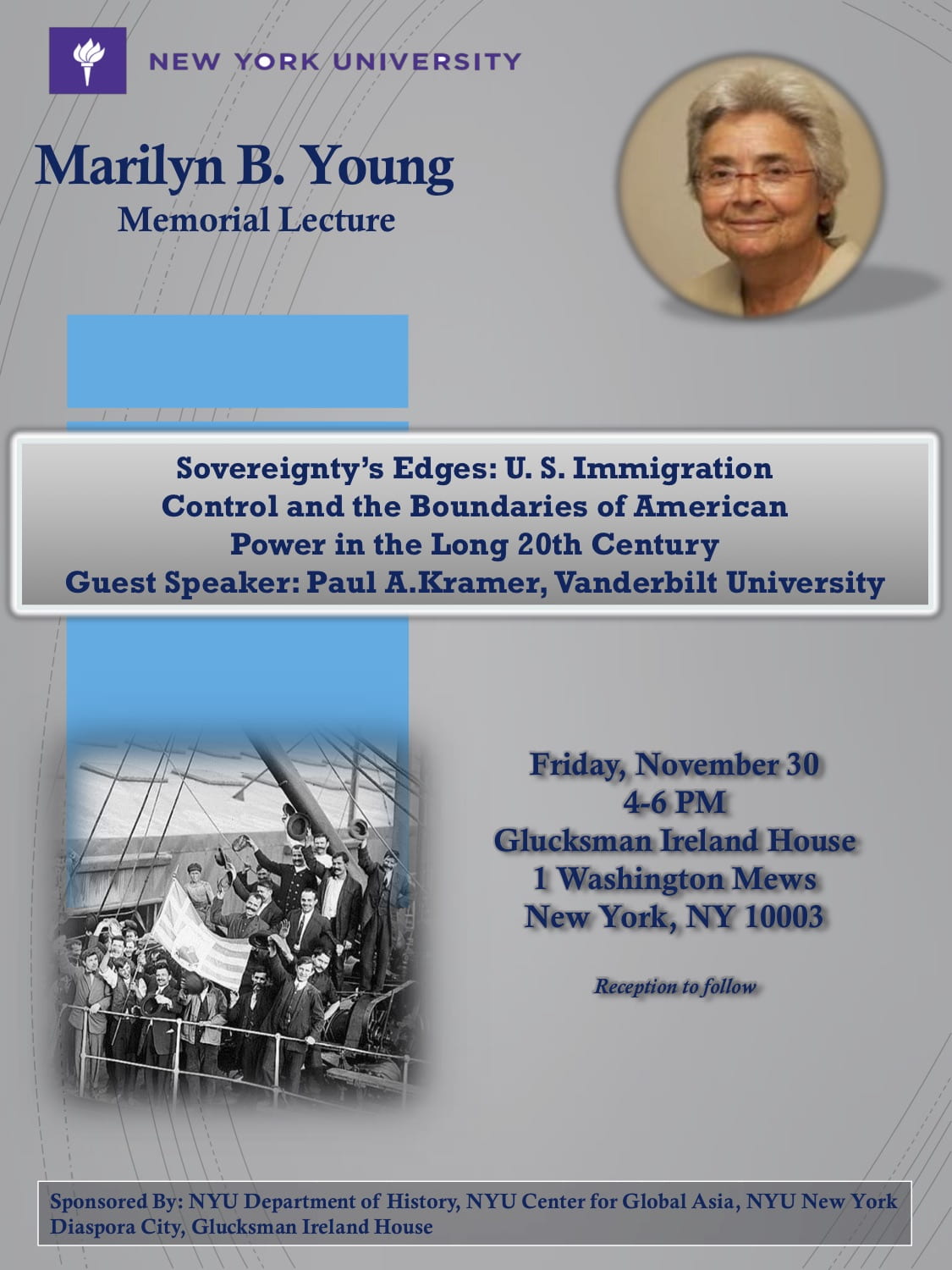The Global Asia Colloquium
APRIL 5, 2019, 4:00-6:45.
701 KJCC (53 Washington Square South). With Wine and Cheese.
A Book Launch of US Edition for Gyan Prakash’s new book,
Emergency Chronicles: Indira Gandhi and Democracy’s Turning Point
with discussion by Manu Bhagavan (Hunter College, CUNY), Manu Goswami (NYU), Meghna Chaudhuri (NYU), and Sanjay Ruparelia (The New School)
On the night of June 25, 1975, Indira Gandhi declared a state of emergency in India, suspending constitutional rights and rounding up her political opponents in midnight raids across the country. In the twenty-one harrowing months that followed, her regime unleashed a brutal campaign of coercion and intimidation, arresting and torturing people by the tens of thousands, razing slums, and imposing compulsory sterilization on the poor. Emergency Chronicles provides the first comprehensive account of this understudied episode in India’s modern history. Gyan Prakash strips away the comfortable myth that the Emergency was an isolated event brought on solely by Gandhi’s desire to cling to power, arguing that it was as much the product of Indian democracy’s troubled relationship with popular politics.
Drawing on archival records, private papers and letters, published sources, film and literary materials, and interviews with victims and perpetrators, Prakash traces the Emergency’s origins to the moment of India’s independence in 1947, revealing how the unfulfilled promise of democratic transformation upset the fine balance between state power and civil rights. He vividly depicts the unfolding of a political crisis that culminated in widespread popular unrest, which Gandhi sought to crush by paradoxically using the law to suspend lawful rights. Her failure to preserve the existing political order had lasting and unforeseen repercussions, opening the door for caste politics and Hindu nationalism.
Gyan Prakash is the Dayton-Stockton Professor of History at Princeton University. His many books include Mumbai Fables: A History of an Enchanted City (Princeton), Bonded Histories: Genealogies of Labor Servitude in Colonial India, and Another Reason: Science and the Imagination of Modern India (Princeton). He lives in Princeton, New Jersey.
*Abstract and bio retrieved from Princeton University Press, 2019
